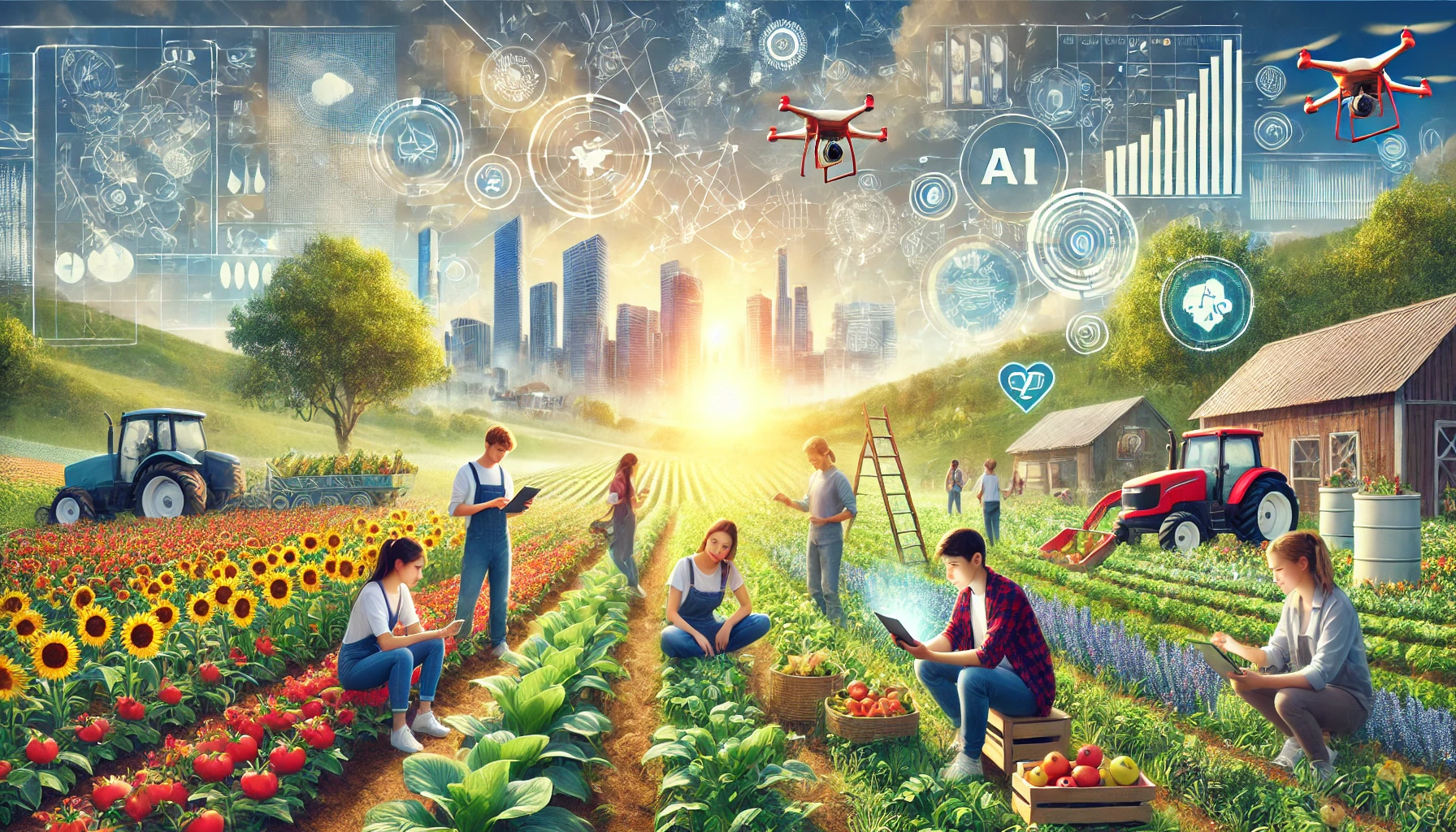Bridging Data Gaps to Boost Jobs and Food Security in Agrifood Systems
Christine Campeau, Global Policy Director at CARE and moderator of the event, set the stage for a conversation rooted in equity and inclusion.

- Country:
- Italy
At the 53rd Plenary Session of the Committee on World Food Security (CFS53), the International Labour Organization (ILO) and global development partners emphasized the transformative power of data in building inclusive, sustainable, and equitable agrifood systems. The side event titled "Harnessing Data for Policy Making: Advancing Food Security and Decent Jobs in Agri-Food Systems" (SE34), convened at FAO headquarters in Rome and online, highlighted how bridging data gaps can drive decent job creation, increase food security, and stimulate investment across the agrifood sector.
A Collaborative Effort to Elevate Evidence-Based Policy
Co-organized by the ILO, CIRAD (French Agricultural Research Centre for International Development), CARE International, and the International Fund for Agricultural Development (IFAD), the session brought together policymakers, researchers, and development practitioners to discuss how robust data systems can inform smarter, more inclusive policies.
Christine Campeau, Global Policy Director at CARE and moderator of the event, set the stage for a conversation rooted in equity and inclusion. The session built on the Decent Work for Equitable Food Systems Coalition, jointly led by IFAD, the ILO, and CARE, to highlight the necessity of integrating decent work into food system transformations.
"Agri-food data is not just numbers — it reflects the lives and labour of millions who feed the world. Our task is to make their work visible, their rights respected, and their voices heard," emphasized Frank Hagemann, Director of ILO's Sectoral Policies Department, during the opening remarks.
Making the Invisible Visible: The Role of Data
A major focus of the event was the JobAgri pilot project in Ghana, which exemplifies how employment-focused data initiatives can reshape agricultural and labor policies. By analyzing agri-value chains, employment trends, and farm structures, JobAgri equips governments with data to better design inclusive, targeted policies that respond to real-world labor dynamics.
Pierre Girard of CIRAD, delivering a keynote address, explained:
"Looking at how value chain analysis, production models, and farm structures interact helps us better identify the right policy levers. Through JobAgri, we aim to deepen our understanding of what decent work means in the agrifood sector."
The project underscores how data transparency and analytical capacity can unlock new opportunities for youth, women, and marginalized groups in rural areas, where agriculture remains a primary source of employment but often underprotected and undervalued.
Data Gaps and Policy Blind Spots
Participants stressed that significant data blind spots remain in the agrifood sector—especially concerning informal employment, wage conditions, labor rights, and occupational health and safety. These gaps inhibit efforts to design evidence-based interventions and perpetuate a lack of visibility for millions of food system workers.
Speakers agreed that closing these data gaps is essential for promoting decent work, securing livelihoods, and advancing food system resilience in the face of global shocks, including climate change, pandemics, and conflict-driven displacement.
A Roadmap to the Future: CFS and Beyond
The side event's discussions aligned with the broader CFS agenda, building on the outcomes of CFS52, which called for stronger integration of decent work into food systems. The event also served as a precursor to the 2025 CFS Plenary, which will focus on responsible investment and financing for food security and nutrition.
Organizers and participants called for:
-
National investment in agri-labor data systems
-
Stronger multi-stakeholder coalitions for policy co-creation
-
Global and regional partnerships to scale up successful data pilots
-
Protection and empowerment of food systems workers, especially in informal and rural sectors
Looking Ahead: Data for Decent Work and Food Security
The ILO and its partners reiterated their commitment to supporting data-informed transformation of agrifood systems. Through technical assistance, capacity-building, and knowledge exchange, they aim to help governments better link employment, agriculture, and food security policies.
By ensuring that decent work becomes a central pillar of sustainable food systems, stakeholders hope to deliver not just more jobs, but better jobs—rooted in dignity, safety, and economic empowerment.
"We must ensure that those who feed the world do not go hungry themselves," concluded one panellist. "And for that, we need data that speaks, policies that respond, and partnerships that act."
ALSO READ
-
Investors Urge Plant-Based Protein Push Amid Growing Food Security Risks
-
Philippines Pushes for Sustainable and Decent Work in Aquaculture Sector
-
GAFSP, AfDB Launch $200M Facility to Boost Food Security and Agribusiness Finance in Africa
-
Decent Work and Food Security Seen as Pillars of Peace at Geneva Peace Week 2025
-
New Edible Oil Regulations: Strengthening National Food Security









